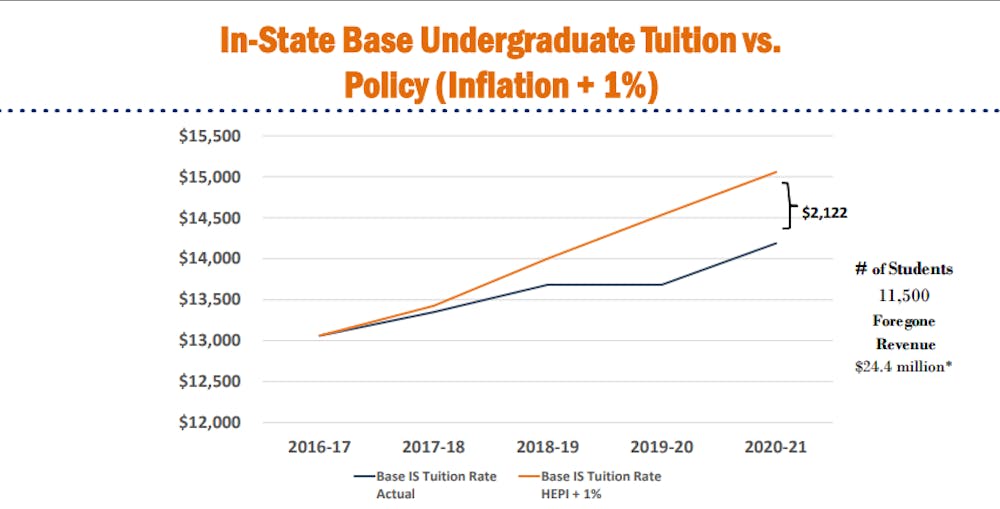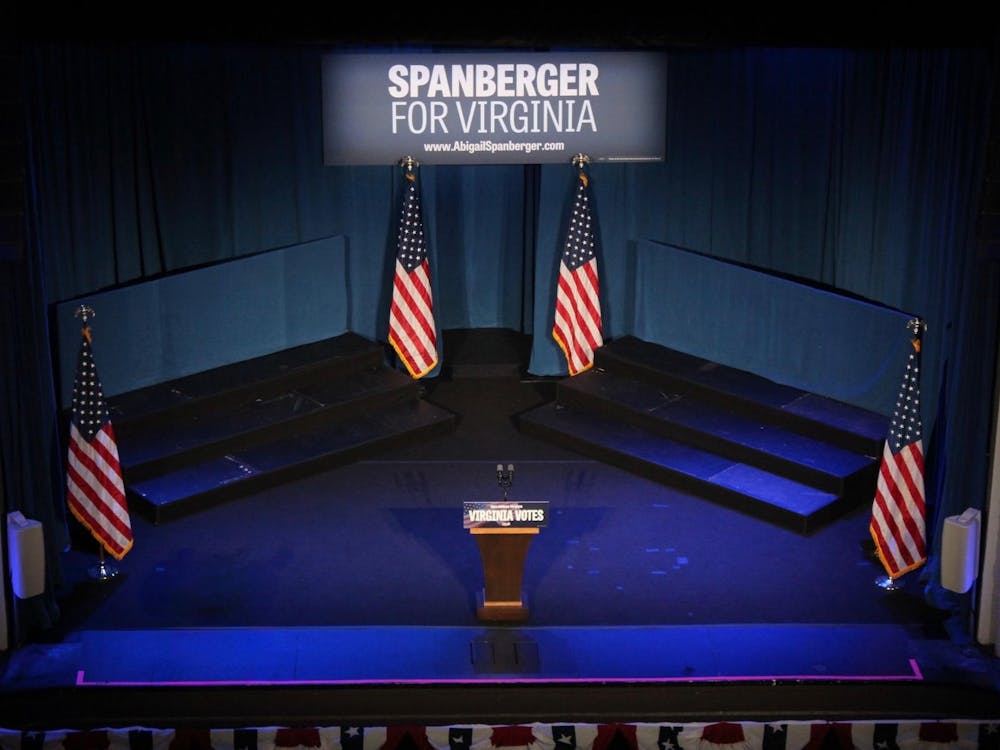The Board of Visitors Finance Committee convened Friday morning in the Rotunda to discuss several action items regarding tuition rates, faculty and student housing, University construction projects and quasi-endowment funds. Each motion proposed was passed unanimously by the Board.
The first item action passed was a request for a 3.6 percent tuition increase, strongly supported by a presentation from President Jim Ryan. Ryan assured the Board that the rate was in line with the University’s Six-Year Plan — a multi-year financial plan that is paired with the University’s Cornerstone Plan.
The Cornerstone Plan was approved in 2013 and implemented in the fall of 2014. Through the workings of this multi-year plan, the University strives to increase enrollment growth, strengthen faculty recruitment and retention and improve financial aid. In alignment with the Six-Year-Plan, a tuition increase at a rate of roughly inflation-plus-one percent was proposed.
The Office of University Communications issued a press release after the rate’s approval.
“Tuition and mandatory fees for all continuing undergraduates — as well as those undergraduates entering the College of Arts & Sciences, the Curry School of Education and Human Development, the School of Architecture and the McIntire School of Commerce — will increase by 3.6 percent, or between $510 and $880 annually for in-state students, and $1,710 to $2,094 for out-of-state students,” the statement said.
In addition, undergraduate students entering the School of Engineering, Batten and Nursing will experience a tuition rate and fees increase of $1,000 to $2,000 more than those already enrolled in these schools.
The Board held a workshop and public comment session Nov. 11 regarding the proposed changes. Prior to the session, YDSA at U.Va. wrote an open letter to the Board of Visitors urging them to freeze tuition and all fees. The letter cited the rising costs of attending the University, including increased fees for meal plans and on-Grounds housing.
Ryan advocated for the tuition increase, claiming its necessity in order to keep the University in competition with other private and public institutions. Ryan referred to the University’s failure to meet the Board’s goal — set in 2013 — to rank within the top 20 schools in the Association of American Universities for faculty salaries.
“It would be easy for us to lower our standards and to become a large state school,” Ryan said, “But that's not why I was hired. I was hired to preserve what's distinctive about U.Va., and not just to preserve what's distinctive about U.Va., but to improve upon it.”
In order to maintain the University’s prestige, Ryan addressed the importance of funding student resources — like financial aid and research — to improve ranking and investment value.
“What we are trying to do here is to prepare students to be able to change the world,” Ryan said. “There's no getting around the fact that it's expensive.”
The Board then passed a motion to increase rent rates for faculty housing units by 2.6 percent to meet the state policy that requires rents to reflect market rates. A following motion for a 2.0 percent increase in student housing rates passed to compensate for University construction debts.
Proposals regarding financial plans for the construction of the University Hotel and Conference Center, Darden Inn and Athletics Complex Phase II: Schematic Design, were all passed unanimously.
Issues on quasi-endowments — endowments set aside by the Board of Visitors — for Darden and the School of Medicine were also proposed. A request for $12.2 million to be set aside from Darden’s total operating reserves was passed.
Jennifer Wagner Davis, executive vice president and chief operating officer, outlined how Darden intends to use the quasi-endowment.
“The Darden school intends to use these funds to satisfy the Board of Vistor’s reserve requirement for financially self-sufficient schools, which currently does require schools to do 25 percent of operating reserves and expenses,” Davis said.
The School of Medicine requested a disinvestment of a quasi-endowment fund from which proceeds will go to funding debt service requirements. The passing of this motion will help avoid future debt with the construction of the new musculoskeletal center underway. The meeting closed with the passing of a contract to improve long-term savings for the Health Center.







